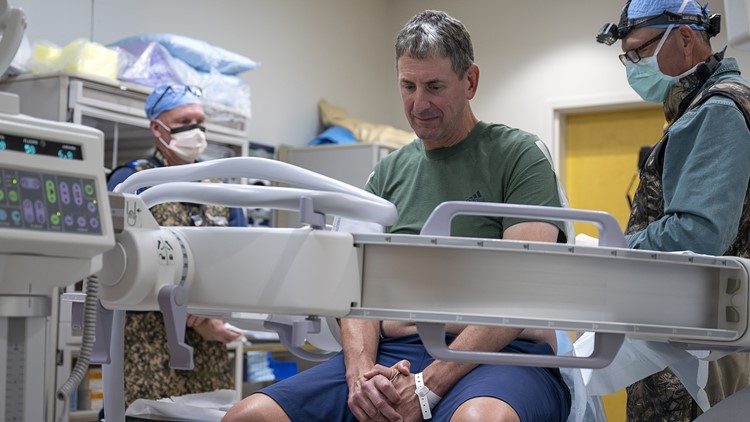COLUMBUS, Ohio — The Ohio State University Wexner Medical Center is one of the first in the U.S. to administer a targeted gene therapy for patients with a specific form of ALS.
ALS, also called Lou Gehrig’s disease, is a neurodegenerative disease that affects the cells in the brain and spine.
“Once ALS begins, it is relentlessly progressive. So the idea of this drug is that it is going to slow the rate of the progression of the disease. The whole idea of these medications is to slow, if not stop, the progression of motor neuron loss that's occurring. So there's a lot of excitement,” said Stephen Kolb, professor of neurology and biological chemistry and pharmacology at The Ohio State University College of Medicine.
Last week, Granville resident Andrew Wurm, 53, received his first dose during a procedure at Ohio State’s Spine Center. Steve Severyn, associate professor emeritus of anesthesiology at Ohio State, and his team administered the drug.
“There's going to be a period of loading doses. So in his case, he'll be back in two weeks. From there on, how many more loading doses are done, that's established by the treatment protocol,” Severyn said.
ALS affects more than 31,000 people in the United States, according to the Centers for Disease Control and Prevention.
“With our increased understanding of the genetics of ALS, we now have a specific genetic target to treat, and we have the biological tools to actually hit that target. I think that there's a lot of reason for hope,” said Kolb.
After the initial loading doses, Wurm, who was diagnosed with ALS in October 2022, will return on a monthly basis to receive the gene therapy.
Wurm first noticed something was wrong in 2018 when he started falling and could no longer run half-marathons. As the disease has progressed, he has adjusted to completing some tasks more slowly and asking for help with chores like mowing the lawn. He relies on walking sticks to help him keep his balance and he’s proud that he can still attend his children’s soccer games.
“If I can stabilize, and maybe get a little better and stay that way for a long time, that's a lot different viewpoint of where I'll be versus when I was first diagnosed,” Wurm said.



